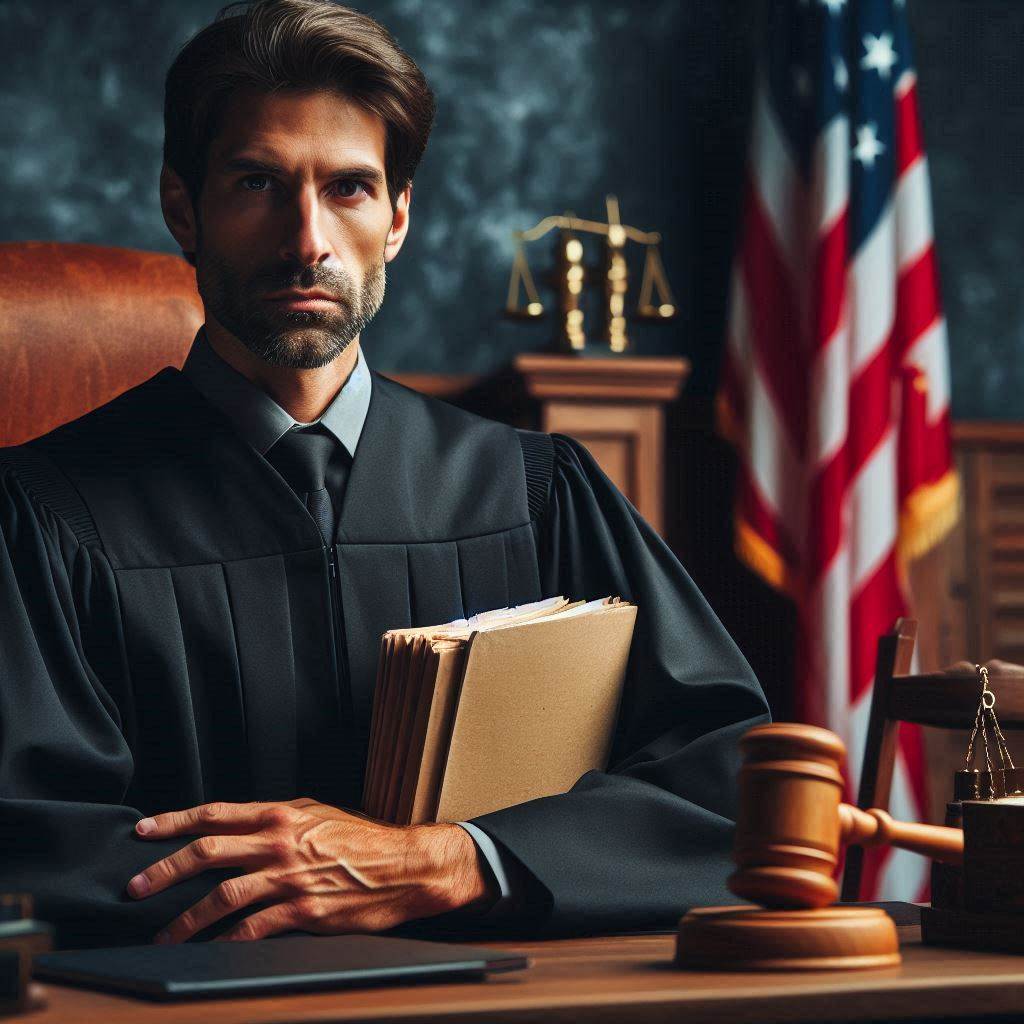Introduction
Brief explanation of what legal mediators do
Legal mediators play a crucial role in conflict resolution.
They facilitate negotiations between disputing parties to reach mutually acceptable agreements.
Mediators help parties communicate effectively, identify common interests, and explore potential solutions.
They act as neutral third parties, ensuring fairness and balance throughout the process.
Mediators do not make decisions for the parties; instead, they guide discussions and help parties find their own resolutions.
This approach empowers parties to take control of their outcomes and encourages collaborative problem-solving.
Importance of legal mediators in resolving cases outside of court
Legal mediators are vital for resolving cases outside of court.
Their role is increasingly important in today’s legal landscape.
Court systems are often overloaded, leading to lengthy delays and high costs.
Mediation offers a more efficient and cost-effective alternative.
By resolving disputes through mediation, parties can avoid the adversarial nature of court proceedings.
This can preserve relationships and reduce the emotional toll of conflict.
Mediation also allows for more flexible and creative solutions that better meet the needs of all parties involved.
Basically, legal mediators are essential in facilitating conflict resolution outside of court.
They guide parties through negotiations, helping them find mutually beneficial solutions.
By offering an efficient and cost-effective alternative to litigation, mediators play a crucial role in the legal system.
Their work helps reduce court congestion, preserve relationships, and provide tailored solutions to disputes.
As the demand for mediation grows, the importance of legal mediators continues to rise, making their role indispensable in modern conflict resolution.
Family Law Cases
Definition of family law cases
Family law cases involve legal issues related to family relationships.
These cases often include matters such as divorce, child custody, and support.
Family law cases can be emotionally charged and complex, requiring sensitive handling to reach amicable solutions.
Legal mediators play a crucial role in resolving these disputes by facilitating constructive dialogue and promoting understanding between parties.
How legal mediators help families resolve disputes
Legal mediators help families resolve disputes by providing a neutral environment for discussions.
They guide the parties through the negotiation process, helping them communicate effectively.
Mediators encourage parties to express their concerns and needs openly.
They assist in identifying common interests and exploring potential solutions.
By focusing on collaboration rather than confrontation, mediators help families reach agreements that are in the best interests of all involved, especially children.
Examples of family law cases handled by legal mediators (e.g., child custody, divorce)
Legal mediators handle various family law cases, including child custody disputes.
In these cases, mediators help parents create parenting plans that prioritize the child’s well-being.
They facilitate discussions on visitation schedules, decision-making responsibilities, and other important aspects of co-parenting.
Divorce cases are another common area where mediators are involved.
They assist couples in negotiating the terms of their separation, including property division, spousal support, and child support.
Mediation helps couples avoid contentious court battles, reducing the emotional and financial toll of divorce.
In fact, family law cases often involve sensitive and complex issues that require careful handling.
Legal mediators play a vital role in resolving these disputes by facilitating constructive dialogue and promoting understanding.
They help families reach amicable solutions that prioritize the well-being of all involved, especially children.
Mediation in family law cases, such as child custody and divorce, offers a more collaborative and less adversarial approach to conflict resolution.
By guiding families through the negotiation process, mediators help them find mutually beneficial agreements that can lead to more positive outcomes and better relationships.
Read: Prosecutors’ Role in Sentencing and Appeals
Workplace Disputes
Explanation of workplace disputes
Workplace disputes are conflicts or disagreements that arise between employers and employees in a work setting.
These disputes can be related to various issues such as discrimination, harassment, wrongful termination, wage disputes, and more.
Workplace disputes can have a significant impact on the working environment, productivity, and morale of employees.
Role of legal mediators in resolving conflicts between employers and employees
Legal mediators play a crucial role in resolving workplace disputes by facilitating communication and negotiation between the parties involved.
They help identify the underlying issues, explore possible solutions, and assist in reaching a mutually acceptable resolution.
Mediators are neutral third parties who help parties find common ground and work towards a compromise that is fair and satisfactory to all.
Examples of workplace disputes handled by legal mediators
- Discrimination: Mediators help employees and employers address issues related to discrimination based on race, gender, age, religion, disability, or other protected characteristics.
They work to create a conducive environment for open dialogue and understanding to resolve these sensitive issues. - Harassment: Legal mediators assist in handling cases of harassment, including sexual harassment, bullying, and hostile work environments.
They guide parties in having difficult conversations, setting boundaries, and developing strategies to prevent future incidents. - Wrongful termination: Mediators help parties navigate disputes related to wrongful termination, including disputes over severance pay, non-compete agreements, and breach of contract.
They strive to find a middle ground that upholds fairness and justice for both parties. - Wage disputes: Legal mediators work with employers and employees to resolve conflicts over wages, bonuses, overtime pay, and other compensation-related issues.
They facilitate discussions on compensation structures, performance evaluations, and workplace policies to reach a resolution that is agreeable to all parties. - Workplace conflicts: Mediators assist in resolving general workplace conflicts such as communication breakdowns, personality clashes, and disputes over work assignments.
They help parties improve communication, build trust, and develop conflict resolution skills to create a harmonious work environment.
Overall, legal mediators play a vital role in addressing workplace disputes and promoting harmonious relationships between employers and employees.
By utilizing their facilitation and negotiation skills, mediators help parties work together towards finding amicable solutions to their conflicts, fostering a positive and productive work environment.
Read: Mentorship Programs for Aspiring Prosecutors
Civil Cases
When it comes to civil cases, legal mediators play a crucial role in helping parties resolve their disputes outside of the courtroom.
Here’s an overview of civil cases and how legal mediators facilitate settlement negotiations:
Overview of Civil Cases
Civil cases involve disputes between individuals, organizations, or entities that typically seek compensation or specific performance rather than criminal penalties.
These cases can range from contract disputes to property disputes and everything in between.
How Legal Mediators Facilitate Settlement Negotiations
Legal mediators act as neutral third parties who assist disputing parties in reaching mutually acceptable agreements.
They help identify the underlying issues, improve communication, and guide the negotiation process to find a resolution that satisfies all parties involved.
Examples of Civil Cases Handled by Legal Mediators
- Contract Disputes: Legal mediators help parties renegotiate and clarify terms to reach a new agreement.
- Property Disputes: Mediators facilitate discussions on property ownership, boundaries, or use rights.
- Personal Injury Cases: Mediators assist in reaching settlements for compensation without going to trial.
- Employment Disputes: Mediators help resolve conflicts between employers and employees regarding wrongful termination, discrimination, or harassment.
- Family Law Disputes: Mediators aid in the resolution of divorce, child custody, or support matters amicably.
Overall, legal mediators have the expertise and skills to navigate the complexities of civil cases and guide parties towards a mutually beneficial resolution.
They offer a cost-effective and efficient alternative to traditional litigation, allowing parties to maintain control over the outcome of their dispute.
Read: Continuing Education for Prosecutors: Courses and Tips

Business Disputes
Explanation of personal injury cases
Personal injury cases involve legal disputes where individuals claim to have been injured due to another’s negligence.
These cases can include physical injuries, emotional distress, and financial losses.
Common examples include car accidents, slip and falls, and medical malpractice.
Victims seek compensation for medical expenses, lost wages, and pain and suffering.
These cases often require negotiation to reach a fair settlement.
Role of legal mediators in negotiating settlements between injured parties and insurance companies
Legal mediators play a crucial role in personal injury cases by facilitating negotiations between injured parties and insurance companies.
Mediators help both sides communicate effectively and understand each other’s positions.
They guide the discussion to focus on resolving the dispute rather than prolonging conflict.
Mediators ensure that the injured party’s concerns are heard while also considering the insurance company’s perspective.
By fostering a cooperative environment, mediators help achieve fair and equitable settlements.
Examples of personal injury cases handled by legal mediators
Legal mediators handle a variety of personal injury cases.
Car accident cases are common, where mediators help negotiate compensation for medical bills and vehicle repairs.
Slip and fall cases also benefit from mediation, as mediators assist in resolving claims related to injuries sustained on another’s property.
In medical malpractice cases, mediators help parties discuss compensation for medical errors or negligence.
Workplace injury cases are another example, where mediators facilitate discussions between injured employees and employers or their insurance providers.
By addressing the unique aspects of each case, mediators help achieve satisfactory resolutions.
Ultimately, personal injury cases involve legal disputes over injuries caused by another’s negligence.
Legal mediators play a vital role in these cases by facilitating negotiations between injured parties and insurance companies.
Mediators guide discussions, ensuring effective communication and understanding between both sides.
They help achieve fair settlements by considering the needs and concerns of all parties involved.
Examples of personal injury cases handled by mediators include car accidents, slip and falls, medical malpractice, and workplace injuries.
Through mediation, these disputes can be resolved more efficiently and amicably, benefiting all parties.
Read: How to Prepare for a Career as a Prosecutor
Personal Injury Cases
Explanation of personal injury cases
Personal injury cases involve legal disputes that arise when one person suffers harm from an accident or injury, and someone else may be legally responsible for that harm.
Transform Your Career Today
Unlock a personalized career strategy that drives real results. Get tailored advice and a roadmap designed just for you.
Start NowRole of legal mediators in negotiating settlements between injured parties and insurance companies
Legal mediators play a crucial role in personal injury cases as they help facilitate negotiations between the injured party and the insurance company in order to reach a fair settlement without going to trial.
Examples of personal injury cases handled by legal mediators
Some examples of personal injury cases that are often handled by legal mediators include:
- Car Accidents: Legal mediators can help negotiate settlements between car accident victims and insurance companies to cover medical expenses, lost wages, and other damages.
- Slip and Fall Accidents: Legal mediators can assist in resolving disputes between property owners and individuals who have been injured on their premises due to negligence.
- Medical Malpractice: Legal mediators can facilitate negotiations between patients who have suffered harm due to medical errors and healthcare providers or their insurance companies.
- Product Liability: Legal mediators can help injured consumers negotiate with manufacturers or sellers of defective products to obtain compensation for injuries caused by the product.
- Wrongful Death: Legal mediators can aid in resolving disputes between surviving family members and responsible parties in cases where a person has died due to someone else’s negligence.
Real Estate Disputes
Real estate disputes are common issues that legal mediators handle to help parties reach resolutions in property-related conflicts.
These disputes can range from boundary disputes to landlord-tenant conflicts.
Overview of Real Estate Disputes
Real estate disputes often arise when there is a disagreement between parties regarding property ownership, boundaries, leases, or rental agreements.
These conflicts can be highly emotional and complex, making it challenging for parties to resolve them on their own.
Legal mediators step in to assist parties in finding common ground and reaching mutually acceptable solutions.
Through open communication, negotiation, and facilitation, mediators help parties address their concerns and interests effectively.
How Legal Mediators Help Parties Reach Resolutions in Property-Related Conflicts
Legal mediators play a crucial role in resolving real estate disputes by providing a neutral and structured environment for parties to communicate and negotiate.
They help parties identify their underlying needs and interests, explore possible solutions, and work towards a mutually beneficial agreement.
Mediators assist parties in generating creative options, evaluating risks and benefits, and reaching an agreement that addresses the core issues of the dispute.
By focusing on effective communication and collaboration, mediators help parties move past their differences and find common ground.
Examples of Real Estate Disputes Handled by Legal Mediators
- Boundary Disputes: Legal mediators help parties resolve conflicts over property boundaries, such as encroachments or easements.
By clarifying legal rights and interests, mediators facilitate agreements that define and protect boundaries. - Landlord-Tenant Disputes: Mediators assist landlords and tenants in resolving conflicts related to lease agreements, rent payments, property maintenance, or eviction issues.
By fostering constructive dialogue and problem-solving, mediators help parties find fair and practical solutions.
Overall, legal mediators play a vital role in addressing real estate disputes and helping parties navigate complex property-related conflicts.
By promoting effective communication, collaboration, and problem-solving, mediators enable parties to reach agreements that meet their needs and interests.
Criminal Cases
Explanation of criminal cases
Criminal cases involve legal proceedings where the government prosecutes individuals accused of violating criminal laws.
These cases range from minor infractions to serious felonies.
The goal is to determine guilt and impose appropriate penalties, including fines, imprisonment, or community service.
The process includes investigation, charges, trials, and sentencing.
Criminal cases prioritize public safety and justice, aiming to deter future offenses and rehabilitate offenders.
Limited role of legal mediators in criminal proceedings
Legal mediators have a limited role in criminal proceedings compared to civil cases.
Criminal cases follow a structured legal process, which includes law enforcement, prosecutors, and judges.
Mediation is not a substitute for these legal roles.
However, mediators can assist in specific aspects, such as facilitating communication between parties or addressing minor conflicts.
Mediators do not determine guilt or innocence but help find mutually agreeable solutions in appropriate situations.
Instances where legal mediators may assist in criminal cases (e.g., plea bargaining)
Legal mediators can assist in criminal cases during plea bargaining.
Plea bargaining involves negotiations between the defense and prosecution to resolve the case without a trial.
Mediators help facilitate these discussions, ensuring both parties communicate effectively and understand each other’s positions.
This process can lead to reduced charges or lighter sentences in exchange for a guilty plea.
Mediators can also assist in restorative justice programs, where offenders and victims work together to find resolutions.
In juvenile cases, mediators can help address underlying issues and promote rehabilitation.
Lastly, criminal cases involve legal proceedings where the government prosecutes individuals for violating criminal laws.
Legal mediators have a limited role in these proceedings but can assist in specific aspects.
They help facilitate communication and negotiations, such as in plea bargaining or restorative justice programs.
While mediators do not determine guilt, they contribute to finding mutually agreeable solutions in appropriate situations.
By assisting in these ways, legal mediators help improve the efficiency and fairness of the criminal justice system.
Explanation of criminal cases:
Conclusion
Legal mediators handle a wide range of cases, including civil disputes such as contract disputes, property disputes, and personal injury cases.
They also mediate family law cases like divorce, child custody, and visitation rights conflicts.
Criminal cases can benefit from mediation as well, especially in cases involving misdemeanor offenses and minor disputes.
Employment mediation is another common area, where legal mediators help resolve workplace conflicts such as discrimination or wrongful termination.
Mediators also handle business disputes, such as disagreements between partners or conflicts arising from commercial transactions.
Mediation can be effective in resolving disputes in the healthcare industry, including malpractice claims and patient-care issues.
Environmental disputes, such as conflicts over land use or pollution, can also be mediated by legal professionals.
Mediators play a crucial role in helping parties reach mutually acceptable agreements without the need for lengthy court battles.
By facilitating communication and guiding discussions, mediators help parties find common ground and craft creative solutions.
Showcase Your Business Today
Reach thousands of readers actively exploring professional services. Publish your business profile and grow your audience now.
Publish NowLegal mediators are essential in the legal system as they help alleviate the burden on courts and promote efficient resolution of conflicts.
Parties involved in legal disputes are encouraged to consider mediation as a viable alternative to litigation for faster and more cost-effective outcomes.
[E-Books for Sale]
The Big Book of 500 High-Paying Jobs in America: Unlock Your Earning Potential
$19.99 • 500 High-Paying Jobs • 330 pages
Explore 500 high-paying jobs in America and learn how to boost your career, earn more, and achieve success!
See All 500 High-Paying Jobs of this E-Book
1001 Professions Without a Degree: High-Paying American Jobs You Can Start Now
$19.99 • 1001 Professions Without a Degree • 174 pages
Discover 1001 high-paying jobs without a degree! Unlock career tips, skills, and success strategies for just $19.99!




